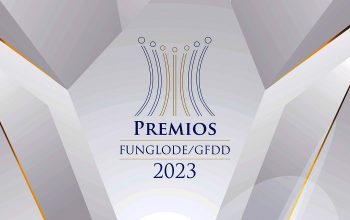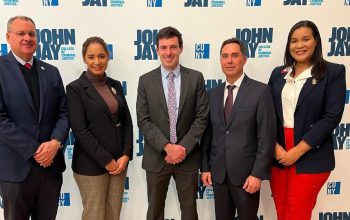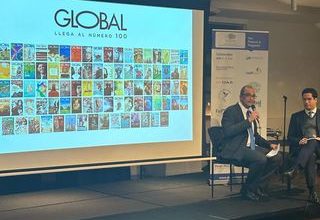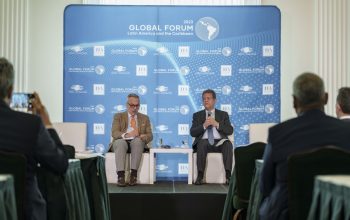news
GFDD Interviews Ambassador Diego Pary Rodríguez for Final Global Roundtable of 2017
December 11, 2017
For GFDD’s fourth and final Global Roundtable of 2017, the Foundation obtained valuable insight from H.E. Diego Pary Rodríguez, Bolivia’s Ambassador and Permanent Representative to the Organization of American States (OAS). Topics such as the importance of inclusion of indigenous peoples in political society, Bolivia’s Law of the Rights of Mother Earth, the role of international organizations in guaranteeing common interests and norms, and
lawful production of coca leaves were discussed.
The conversation began with a discussion on Bolivian President Evo Morales’ contributions to his country. Though he remains a controversial figure for some, Ambassador Pary explained that the past 12 years of Morales’
presidency have led to fundamental and beneficial changes for many sectors of Bolivian society. According to Ambassador Pary, President Morales’ government has implemented policies for sectors in dire need and has achieved greater equality and lower levels of extreme poverty – from 38% to 17% during his time in office.
In many respects, Bolivia has been very forward thinking on issues such as care for the environment and the inclusion of native populations in
democracy. On these topics, Ambassador Pary referred to Bolivia’s support for the United Nations Declaration on the Rights of Indigenous Peoples and spoke about Bolivia’s Law of the Rights of Mother Earth, considered to be the first instance of environmental law that gives legal personhood to the Earth and its ecosystems. Noting its importance, the Ambassador stated: “If we do not take care of Mother Earth, we are destined to a lifeless planet in the
future.”
It was under this framework that the topic of coca leaf cultivation was discussed. In March 2017, the Bolivian government increased legal land allocation of up to 22,000 hectares to coca growers, nearly double previous amounts. Naturally, this was hotly contested in the international community.
Concerning this, Ambassador Pary noted the centuries-old traditions associated with coca leaf production and consumption in the Andean community, and referenced the strict regulations and penalties that are imposed for unlawful uses of the plant.
The final topic of the day’s conversation concerned countries’ integration, both social and economic, with their neighbors, through international organizations such as the OAS and Mercosur. On this topic,
Ambassador Pary mentioned that Bolivia’s aspiration is to break barriers and integrate with nearby communities, stating that “we can never give up the possibility of integration.”
About Ambassador Diego Pary Rodríguez
His Excellency Diego Pary Rodríguez is an indigenous Quechua leader, educator, politician, and Bolivian diplomat. He was Advisor to the Bolivian Constituent Assembly, Vice Minister of Higher
Education, and is currently Bolivia’s Ambassador to the Organization of American States (OAS) and non-resident Ambassador to Trinidad and Tobago, Jamaica, Dominica, and The Bahamas.
About GFDD Global Roundtables
In close association with the United Nations, the Mission of the Dominican Republic to the UN, the Organization of American States, and South-South News, GFDD organizes regular meetings with UN and OAS Ambassadors as well
as with other prominent figures in the international community in an effort to spread the news, knowledge and understanding of other countries, global issues and the work of different international organizations. Through its Global Roundtables, GFDD aims to develop alliances with similarly-focused institutions for the ongoing exchange of experiences and knowledge, and promote face-to-face interactions between the UN, the OAS, and GFDD’s community throughout the United States,
Latin America, and the world.
More Information
GFDD Global Roundtables






